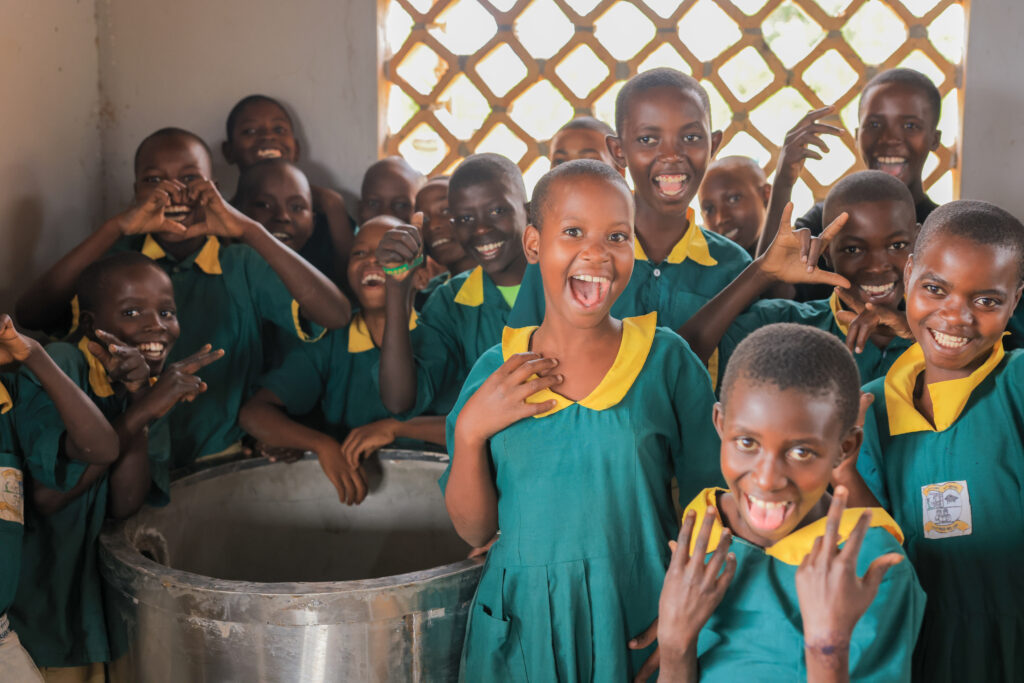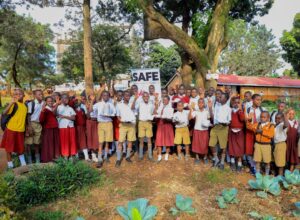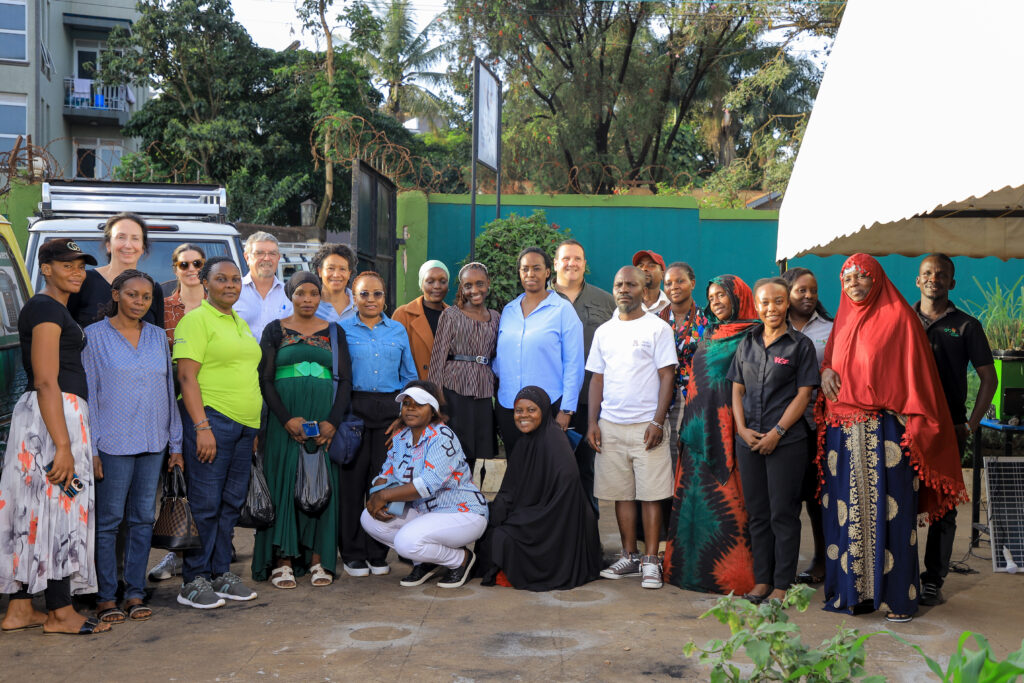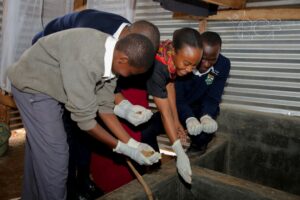What if waste wasn’t just something to discard but a powerful resource waiting to be unlocked?
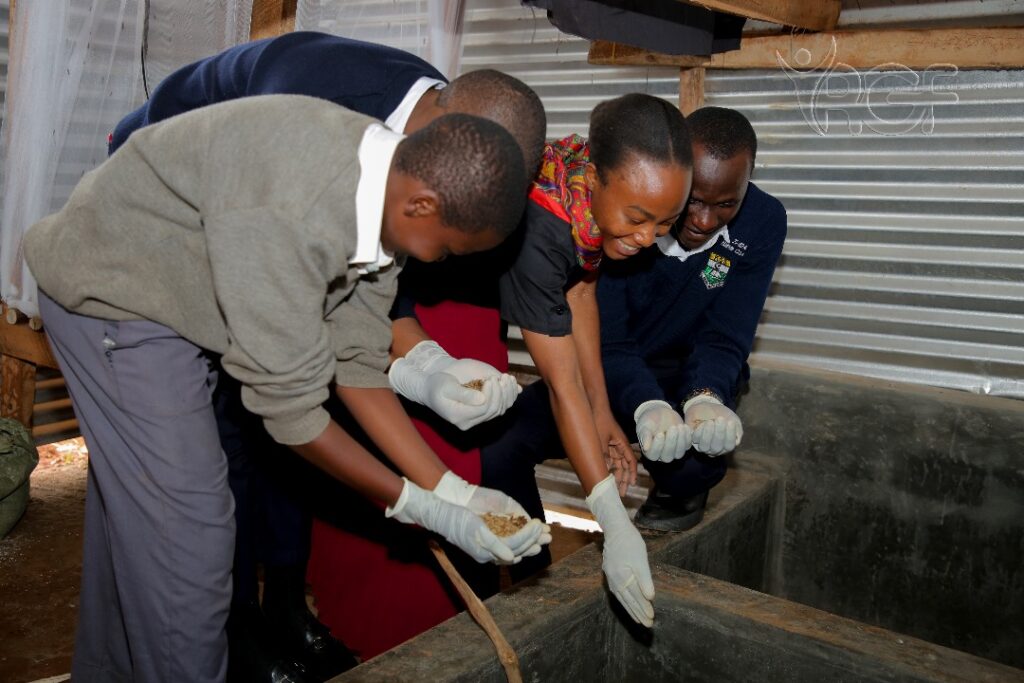
On November 14, 2024, Kibuli Secondary School embraced a groundbreaking initiative, turning food scraps into tangible solutions for environmental sustainability and food security. Through the SAFE Intervention for Urban Refugees Project, Raising Gabdho Foundation (RGF) officially handed over the Black Soldier Fly (BSF) project to the school’s Environment Club.
This innovative project is more than a waste management effort; it’s a transformative journey into the science of sustainability, empowering students with practical skills to rethink waste and reshape their community. With support from partners like DanChurch Aid (DCA) and UNHCR, the initiative brings global goals into local action, creating lasting change through education, collaboration, and hands-on learning.
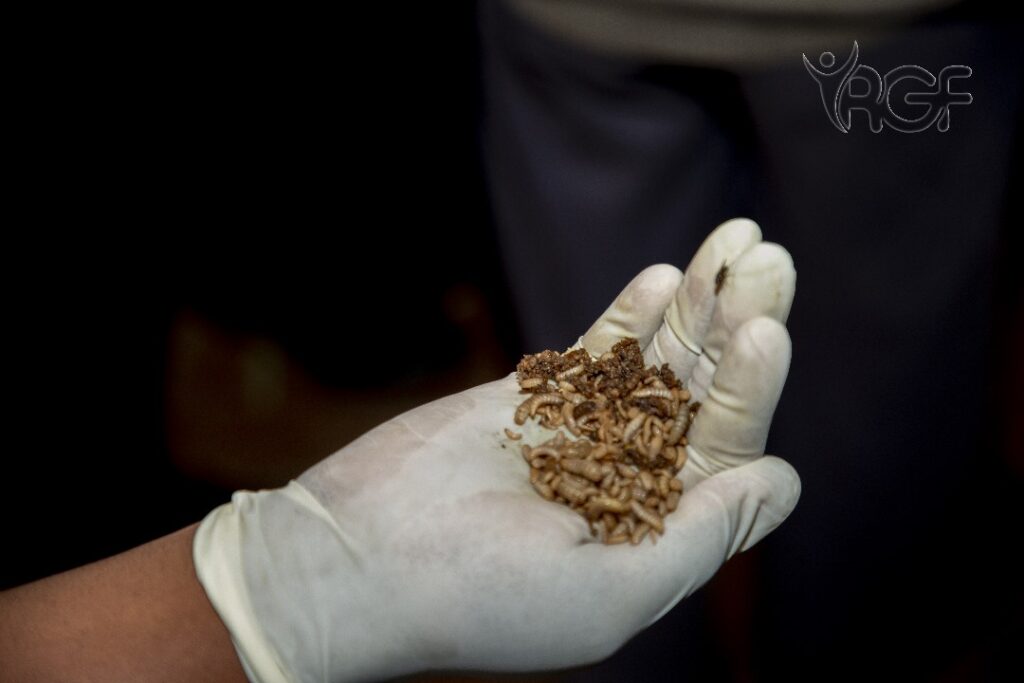
The BSF project introduces the remarkable lifecycle of the Hermetia illucens, or Black Soldier Fly, an insect capable of converting organic waste into nutrient-rich materials. In practical sessions, students explored every step of the process, from preparing food scraps to harvesting protein-packed larvae. Each kilogramme of organic waste can yield 200 grams of larvae biomass, a valuable resource that replaces traditional feed ingredients like soybean and fishmeal in poultry and fish farming. The by-product, frass, serves as an organic fertiliser that enriches soils naturally, reducing reliance on chemical inputs.
For Kibuli’s Environment Club, this wasn’t just a science lesson it was a call to action. “It’s incredible to see how something as simple as waste can become so useful,” shared Club President Abubakar Saleh. “This project has changed how we think about waste; it’s no longer something to discard, but an opportunity.”
The project’s environmental and economic benefits are undeniable. By diverting organic waste from landfills, methane emissions are reduced by up to 80%, directly addressing climate change. On the economic side, affordable, locally produced animal feed offers significant cost savings for farmers while creating entrepreneurial opportunities for youth.
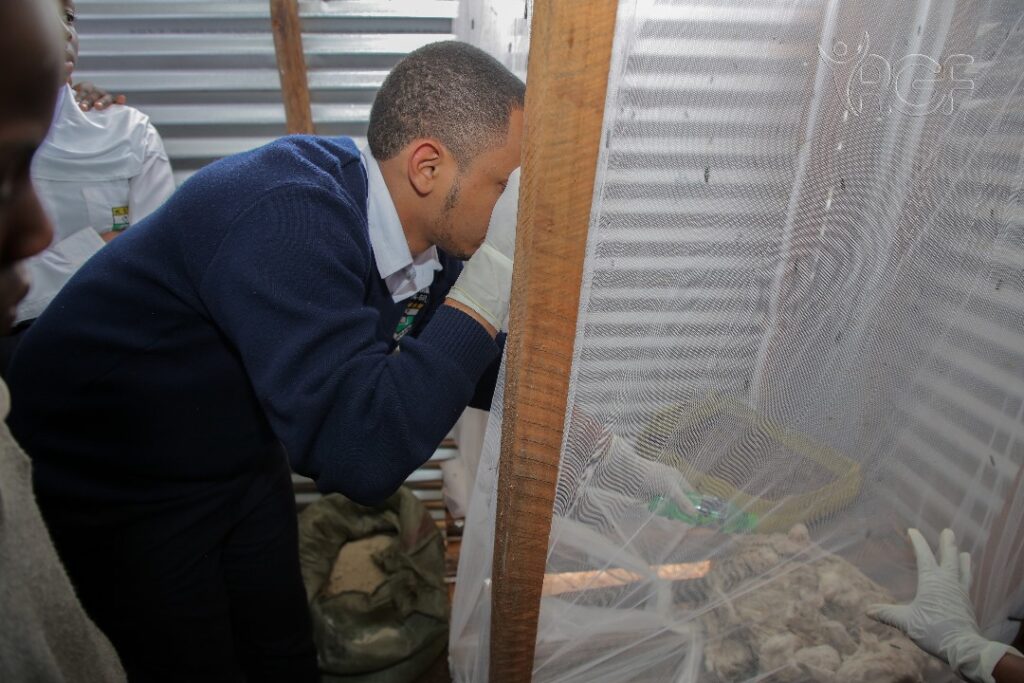
Behind the scenes, the unwavering support of Kibuli Secondary School’s administration, led by teacher-in-charge Mr. Ayembazibwe Martin, has been pivotal. His commitment to making waste recycling a school-wide practice ensures the initiative’s sustainability. “This project is about more than waste management,” Mr. Ayembazibwe reflected. “It’s about empowering our students to take ownership of their environment and see themselves as part of a global solution.”
The handover ceremony was a celebration of shared commitment, concluding with a symbolic cake-cutting moment. Yet the real sweetness lies in the journey ahead. Students are not only reimagining waste but also aligning their efforts with the Sustainable Development Goals, particularly those focusing on responsible consumption, zero hunger, and climate action.
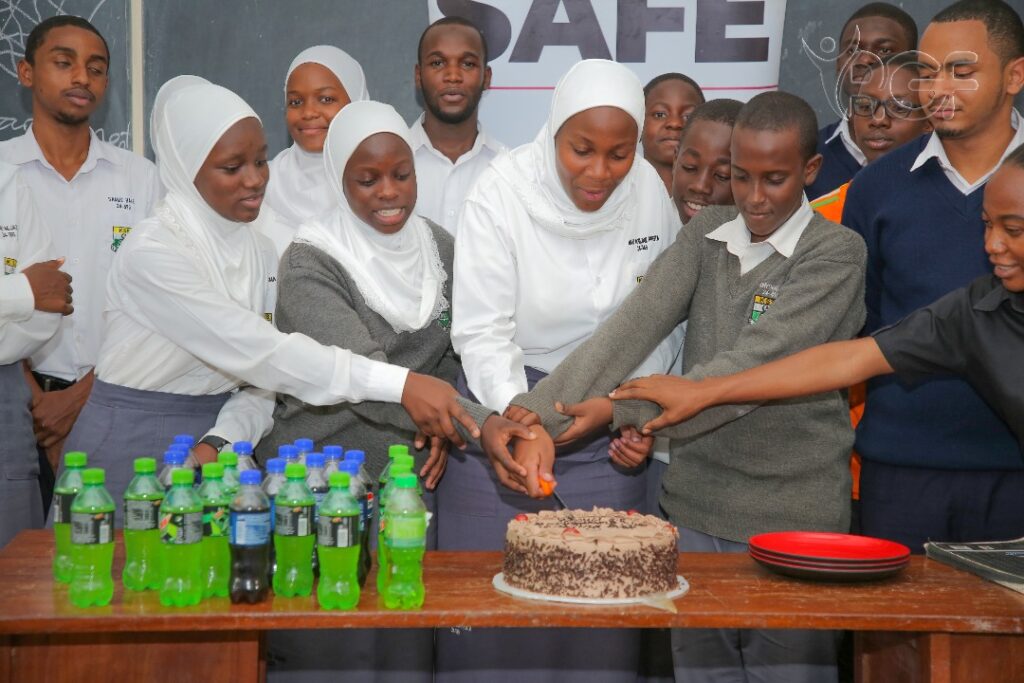
The potential for this project extends far beyond Kibuli. Scaling BSF systems across Kampala could create a network of eco-conscious youth, equipped with skills to tackle environmental challenges sustainably. With regular mentorship and training, these young leaders are poised to shape a future where waste is seen not as a problem but as an opportunity.
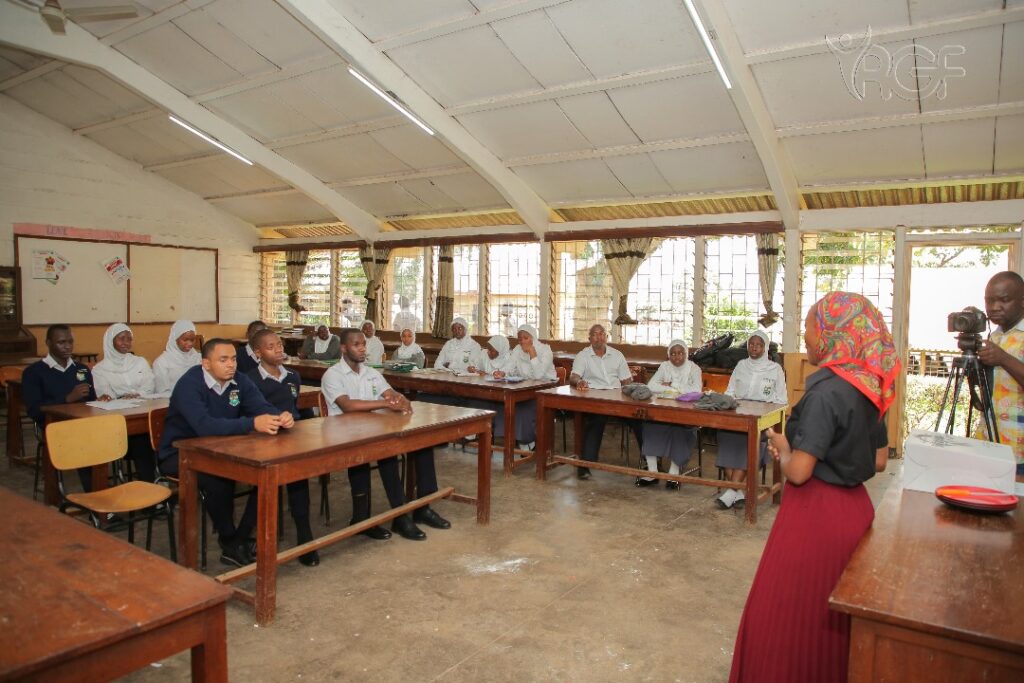
As Kibuli Secondary School’s Environment Club takes the reins of the BSF project, they are stepping into a new role innovators, environmental stewards, and change makers. This initiative reminds us all that when education meets action, the possibilities are endless. Together, we can transform waste into a resource, creating a brighter, more sustainable tomorrow for our planet and communities.
Author’s Notes:
This article highlights the innovative use of Black Soldier Fly (BSF) technology in waste management and environmental sustainability, specifically through a project handed over to Kibuli Secondary School by Raising Gabdho Foundation (RGF). The initiative demonstrates how education, collaboration, and practical skills can empower students to address global challenges like climate change and food security locally. Key partners like DanChurch Aid (DCA) and UNHCR played a critical role in supporting the project, which aligns with the Sustainable Development Goals.
Regards,
Misheal Carolyne.
Citations:
- Raising Gabdho Foundation. “SAFE Intervention for Urban Refugees Project.” www.raisinggabdho.org
- United Nations High Commissioner for Refugees (UNHCR). “Supporting Refugee Integration through Sustainability Projects.” www.unhcr.org
- DanChurch Aid (DCA). “Innovative Climate Action Projects.” www.danchurchaid.org
- Black Soldier Fly Lifecycle and Benefits. “Hermetia Illucens in Waste Management.” https://www.sciencedirect.com/topics/agriculture-and-biological-sciences/black-soldier-fly
- Sustainable Development Goals. “Goals 12, 13, and 2: Responsible Consumption, Climate Action, and Zero Hunger.” www.un.org/sustainabledevelopment


